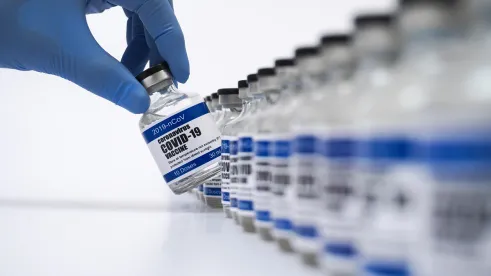On Monday, March 29, 2021, Governor Ron DeSantis signed into law legislation that provides Florida businesses and healthcare providers with substantial protections from COVID-19 related lawsuits.
The New Legislation Generally
S.B. 72, "Civil Liability for Damages Relating to COVID-19," provides a broad measure of civil immunity to individuals, businesses, educational and religious institutions, government entities, and healthcare providers, among others, for claims related to COVID-19. It also creates significant hurdles for potential plaintiffs. Specifically, when filing a lawsuit for COVID-19-related damages, injury, or death, individuals are required to:
-
Plead their allegations with greater particularity than normally required in lawsuits;
-
Submit an affidavit along with the lawsuit by a licensed Florida physician attesting to his or her belief “within a reasonable degree of medical certainty” that the individual’s COVID-19-related damages occurred as a result of a business’s wrongdoing; and
-
Show that the business did not make a good faith effort to substantially comply with public health standards.
These requirements place a substantial burden on individuals during the initial stages of any lawsuit, as businesses that are deemed to have made a good faith effort are immune from civil liability, and the lawsuit cannot proceed unless all of the above requirements are met. Even where a court initially determines that a business did not make a good faith effort, to prevail at trial, individuals must still show that the business engaged in gross negligence under a higher burden of proof – by “clear and convincing evidence.”
As a practical matter, to help avoid liability, businesses should monitor and comply with all federal, state, and local COVID-19-related guidance and rules, particularly including those published by the Centers for Disease Control and Prevention (CDC) and the federal Occupational Safety and Health Administration (OSHA). Such efforts should be documented, including implementation of written safety plans and measures that track CDC and OSHA guidance.
The law also imposes a short one-year statute of limitations period on any individual to sue from the later of: (a) the date of injury that forms the basis of the claim; or (b) the enactment of this law.
The new legislation applies retroactively to claims that arose before the enactment of the law, but does not apply to lawsuits that have already been filed.
Claims Against Healthcare Providers
This legislation also places additional specific requirements for individuals bringing claims against healthcare providers. Under the portion of the new law addressing healthcare providers, a COVID-19-related claim includes those that stem from the following:
-
Diagnosis or treatment, or failure to diagnose or treat, an individual for COVID-19;
-
Provision of any “novel” or “experimental” COVID-19-related treatment;
-
Transmission of COVID-19 to an individual;
-
Where a healthcare provider delays or cancels a surgery, medical procedure, test, or appointment based on the provider’s interpretation or application of government health standards or guidance related to COVID-19;
-
An act or omission regarding an emergency medical condition which was the result of a lack of resources directly caused by the pandemic; and
-
Provision of treatment to a patient diagnosed with COVID-19 whose injuries were directly related to an exacerbation of the individual’s preexisting conditions by COVID-19.
While a suit brought against a healthcare provider does not require a physician’s affidavit, it does require a pleading to be made with the same level of particularity. An individual suing a healthcare provider must also show by the greater weight of the evidence that the healthcare provider was grossly negligent or engaged in intentional misconduct. If a healthcare provider can demonstrate substantial compliance with government-issued standards for COVID-19, the healthcare provider has immunity from suit.
Additional Considerations
The law does not address worker’s compensation, so employees may still file COVID-19-related worker’s compensation claims against their employers. However, this new legislation protects employers from negligence-based and other tort claims related to claimed workplace exposure, and workers filing worker’s compensation claims must still prove their exposure occurred at work.





 />i
/>i


